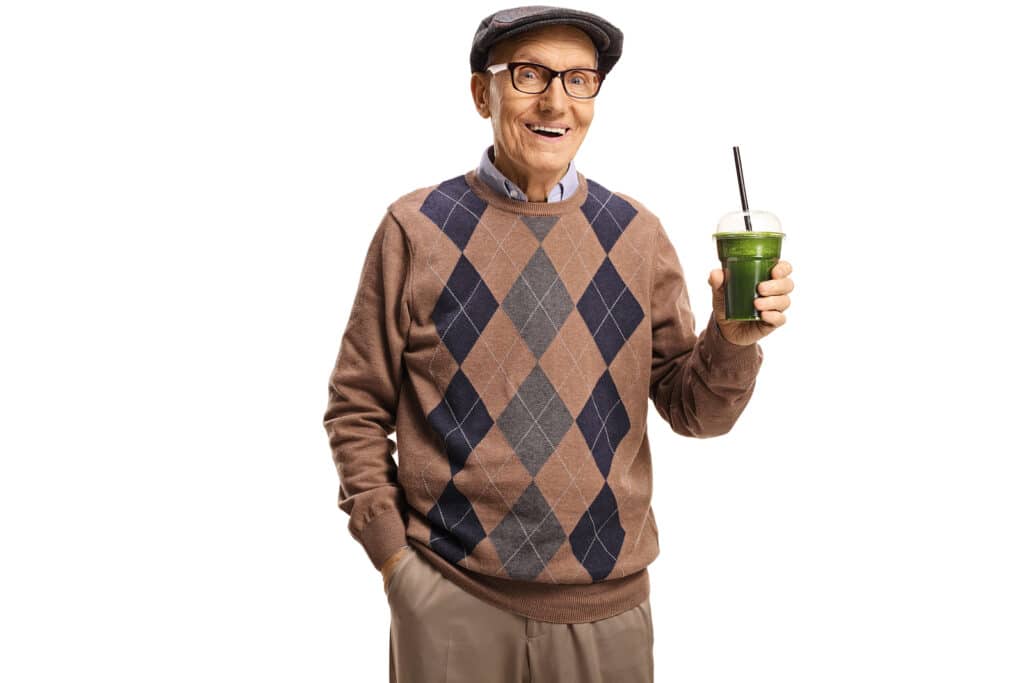Liquid diets for seniors, or meal replacement shakes, are ways to get the nutrition they need without solid foods. Seniors who have trouble chewing, swallowing, lack appetite, or have health problems that require meals that are easy to digest, are often told to follow these diets. Understanding liquid diets can be confusing for some seniors, but their 24-hour home care team can help them manage so it’s a lot easier. When seniors are prescribed a liquid diet, there are a few essential things for them, their care team, and their loved ones to know.
Table of Contents
ToggleA Closer Look at Liquid Nutrition
When significant changes happen to seniors, they need support to ask questions and raise concerns. Loved ones and the 24-hour home care team can help them navigate things like a new diet by helping them assess what questions they have and encouraging them to speak with their healthcare provider. It’s also a good idea for those who care for seniors to have at least a basic understanding.
Types of Liquid Nutrition Diets
There are many different types of liquid nutrition diets for seniors, from liquid supplements to full meal replacements. There are ready-to-drink shakes, meal replacement shakes made from powder, and fresh soups, smoothies, and juices that are blended.
Nutritional Content
Liquid diets provide a balanced mix of macronutrients (carbohydrates, proteins, and fats), vitamins, minerals, and other essential nutrients. Most of the time, they are made to meet the necessary daily intake of nutrients and may have extra vitamins and minerals added to them.
Benefits
There are many good things about liquid nutrition diets for adults. They are easy to eat and don’t need much or any chewing, so they are suitable for people with bad teeth, trouble swallowing, or low hunger. They can give seniors enough food and water, help them stay the same weight or lose weight, and make planning and making meals easier.
Tips For Liquid Nutrition Success
Although seniors can benefit from liquid nutrition diets, it’s vital for their personal care at home team and loved ones to watch for a few things to ensure success.
Variety and Balance
The liquid nutrition plan should include a wide range of nutrients to meet seniors’ nutritional needs. This can be done by adding different tastes, types of liquids, and sources of proteins, carbohydrates, and fats.
Adequate Hydration
Seniors can get some hydration from liquid nutrition meals, but it’s crucial to ensure they drink enough water throughout the day to meet their fluid needs. This can be confusing as seniors might think they’re getting enough water through the diet. With gentle encouragement, their 24-hour home care provider can help with this issue.
Monitoring and follow-up
It’s important to monitor weight, hydration level, and general health when seniors are on a liquid nutrition diet. If the support team notices an issue, they should talk with the medical providers right away.
In most cases, liquid nutrition diets should only be used for a short period with a doctor’s supervision because they might not have all of the necessary nutrients that whole foods do. They also may not be as satisfying as solid meals, making it harder to stick to the diet in the long run. It’s essential to find a good mix and consider adding solid foods when possible, which is something else the 24-hour home care team can assist with.
Providing exceptional 24-Hour Home Care for seniors and families in the Northern Virginia area, including Arlington, Alexandria, McLean, Reston, Burke, Ashburn, Centreville, Springfield, Manassas, and Oakton. Call today to speak with our caring staff: (703) 272-8838.
- What Are Some Surprising Early Signs of Dementia? - May 22, 2025
- Training of the Month: Lymphedema - May 15, 2025
- Career and Opportunities Fair - May 15, 2025




